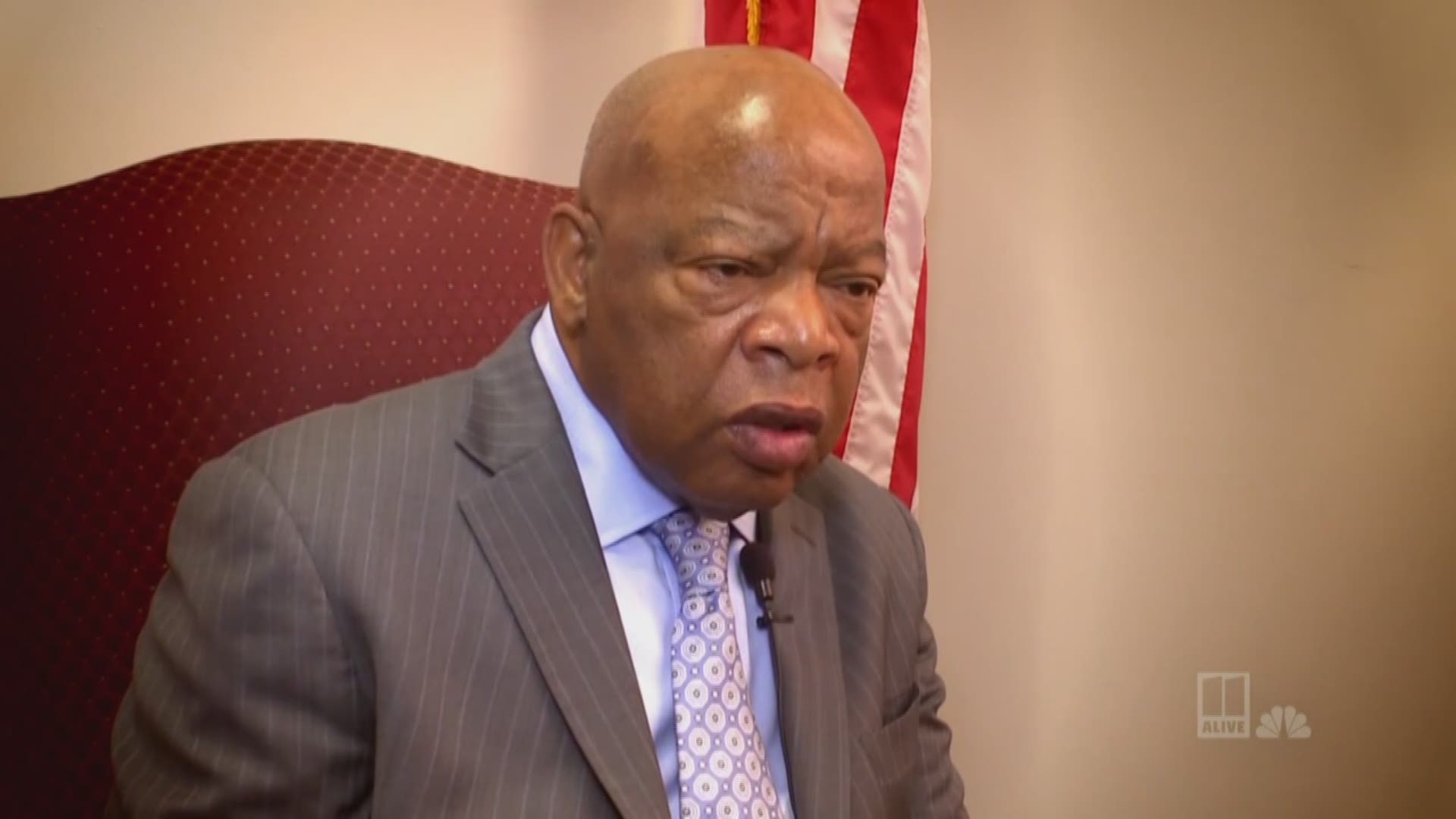ATLANTA — This year brings with it the 55th anniversary of the March for voting rights that happened in Selma, Alabama in 1965 - dubbed Bloody Sunday for how the marchers were beaten and forced back across the Edmund Pettus Bridge.
Two of the architects for the peaceful march were Atlantans - the Rev. Hosea Williams and Rep. John Robert Lewis. Lewis, who just celebrated his 80th birthday is a profile of courage yesterday - and today.
"Growing up in rural Alabama, 50 miles from Montgomery, I didn't like what I saw," Lewis said in an interview with 11Alive. "And we had to change that."
For a young Lewis, a dream would be what empowered him with a vision to see beyond unspeakable horrors of present and past to see the future. He would go on not only to challenge his times but to also change history.
A tenderhearted and resourceful child, Lewis was born on a farm in 1940 and earned the nickname "Preacher."
"Working in the field, my mother would say, 'Boy, you're falling behind, you need to catch up'," he said. "I said, 'This is hard work,' and she would say, 'Boy, hard work never killed anybody.' I said 'Well, it's about to kill me.'"
"So, I learned to work hard and I've been trying to keep up," he added.
At 15, the dream inside John Lewis ignited into a life-long life force as he watched the news of the Montgomery Bus Boycott. Feeding on the revolutionary ideas and ideals of Rosa Parks and Martin Luther King Jr. changed his life.
"Rosa Parks and Dr. King taught me how to get involved," Lewis said. "They inspired - they helped to make me the person that I am today."
This is the John Lewis who, with Dr. King and four others, organized the march on Washington on Aug. 28, 1963. One of the dreamers on those steps in front of Lincoln, and the youngest speaker that day, was Lewis at 23 years old.
"I saw this sea of humanity and I just said to myself, 'This is it. I must give it all I have'," he recounted.
His words that day still echo in the halls of history - and reverberate today.
"We do not want our freedom gradually, but we want to be free now," he said on the steps that day. "We shall splinter the segregated South into a thousand pieces, and put them together in the image of God and democracy."
"We must say, 'Wake up, America. Wake up'," he continued.
His work reiterated the question: Does the dream serve you, or do you serve the dream?
"Your vote is precious - almost sacred," he said many years later as a representative. "It is the most powerful non-violent tool we have to create a more perfect union."
The key he said: "Don't be so quiet. You, too, can bring about a non-violent revolution."
In the words of former President Barack Obama as he presented Lewis with the Medal of Freedom, his story is one of courage - one that will be taught to future generations.
"An American who knew change could not wait for some other person or some other time," President Obama said.

